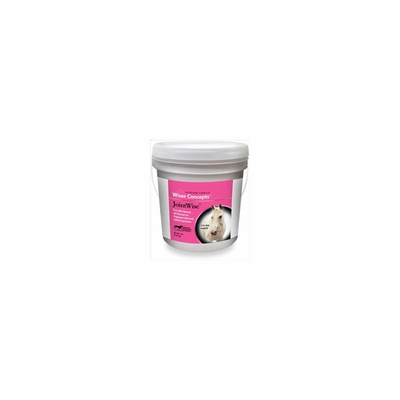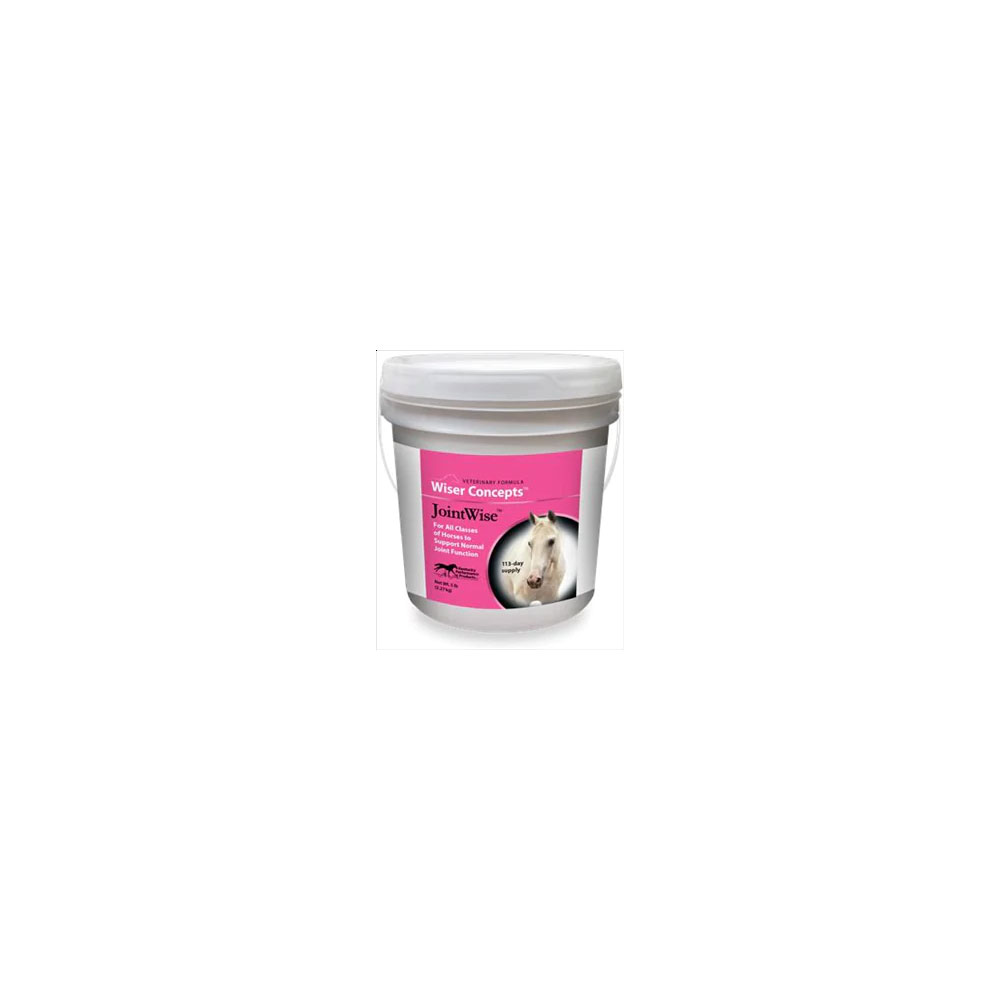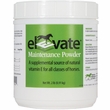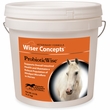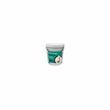Description
JointWise In this modern era, horses are living and performing well into their twenties and thirties. The maintenance of ample lubrication and durable articular surfaces within the joints is necessary to ensure long-term soundness and exceptional performance. Horses of all ages can benefit from the support of JointWise, a complete joint supplement.
- Maintains a balanced immune response within the joint, decreasing damaging inflammation and the development of osteoarthritis
- Preserves fluid motion and flexibility
- Supplies the building blocks necessary to support normal cartilage growth and the regeneration of damaged tissues
- Sustains ample high-quality synovial fluid, which lubricates and nourishes the joints
JointWise:
When health issues arise, always seek the advice of a licensed veterinarian who can help you choose the correct course of action for your horse. Supplements are intended to maintain healthy systems and support recovery and healing. They are not intended to treat or cure illness or injury.
Recommended for
- Performance, race, show and trail horses who are being ridden regularly/li>
- Stallions and broodmares to maintain soundness/li>
- Young horses entering training
Veterinarians frequently recommend JointWise to ensure the maintenance of healthy joints. JointWise is recommended for:
- Horses recovering from recent joint injury
- Horses with a history of joint damage
- Mature horses developing signs of joint stiffness or shortened stride
- Seniors with age-related arthritis
Veterinarians frequently recommend JointWise to support optimal joint function in:
Ingredients
| JointWise Nutrient Analysis per recommended daily serving: Active Ingredients per scoop(20g) |
||
|---|---|---|
| Fermentation Metabolite | 5,000 mg | |
| GLucosamine HCI | 2,500 mg | |
| Glucosamine Sulfate | 2,500 mg | |
| Chondroitin Sulfate | 1,200 mg | |
| Methylsulfonylmethane (MSM) | 1,000 mg | |
| Sodium Hyaluronate | 100 mg | |
| Manganese Sulfate | 100 mg | |
JointWise ingredients
Fermentation Metabolites
Fermentation metabolites (FM) are produced from a proprietary yeast fermentation process. They have been shown in controlled research trials to support a positive immune response when the body is faced with a challenge.
One way scientists view osteoarthritis is to consider it as an imbalance in your horse’s immune system. When an imbalance occurs, specific immune factors lose the ability to recognize “self.” These aggressive immune components begin to attack your horse’s own cells, resulting in inflammation and tissue damage. Research studies have demonstrated the ability of fermentation metabolites to temper these excessive immune responses, maintaining a more balanced system. Further, several factors and compounds that cause the symptoms of arthritis were diminished in animals consuming fermentation metabolites.
Glucosamine (HCL and Sulfate) and Chondroitin Sulfate
Glucosamine and chondroitin sulfate are key nutrients necessary for maintenance of normal joint function. Glucosamine is used as a substrate for certain components of the cartilage matrix, while chondroitin sulfate plays an important role in controlling the enzymes associated with inflammation and tissue destruction. Numerous studies have documented the benefits of combining these two ingredients for joint health.
Studies using equine cartilage explants (small pieces of actual living tissue) have shown these ingredients complement each other in inhibiting the production of inflammatory cells. Interestingly, when these ingredients were used independently of each other, they did not show similar benefits (Orth et al., 2002; Schlueter and Orth, 2004; DeChant et al., 2005).
Glucosamine and chondroitin sulfate have been evaluated in several field studies. In a double-blind placebo-controlled study (Hanson et al., 2001), 14 horses with progressive forelimb lameness showed significant improvement (evaluated by lameness specialists using standardized lameness scores) when administered a treatment of glucosamine and chondroitin for a 28-day treatment period when compared with the control group. In a more recent study (Rodgers, 2006), administration of glucosamine and chondroitin significantly decreased the necessity and frequency of intra-articular therapeutic injections of the hock joints in working show hunters and jumpers.
Hyaluronic Acid (Sodium Hyaluronate)
Hyaluronic acid (HA) is an integral component of synovial fluid and articular cartilage, and is responsible for lubrication of the joint surfaces. While glucosamine and chondroitin sulfate work mainly on the cartilage, HA is more beneficial to the joint fluid. In a study conducted by Bergin and coworkers (2006), oral HA was effective in reducing synovial effusion (an abnormal collection of fluid) following arthroscopic surgery for removal of osteochondritis dissecans (OCD) lesions in joints.
Manganese Sulfate
Manganese is an important cofactor in the formation of the cartilage matrix and synthesis of connective tissue. It contributes to the maintenance of resilient articular surfaces and supports in the repair of damaged tissue.
Methylsulfonylmethane (MSM)
MSM is a natural sulfur compound with anti-inflammatory properties. It supports the reduction of free radicals released during exercise and normal metabolic activities, thereby protecting tissues against damaging oxidative stress. MSM supports the reduction of stiffness and soreness associated with inflammation.
Useful Information
Offer 2 scoops (40 g) daily for the first 3-4 weeks, then reduce to 1 scoop (20 g) daily thereafter.
Storage and shelf life: Store JointWise in a cool, dry place and keep lid tightly closed between uses. Shelf life is 24 months from date of manufacture when stored under suitable conditions.

